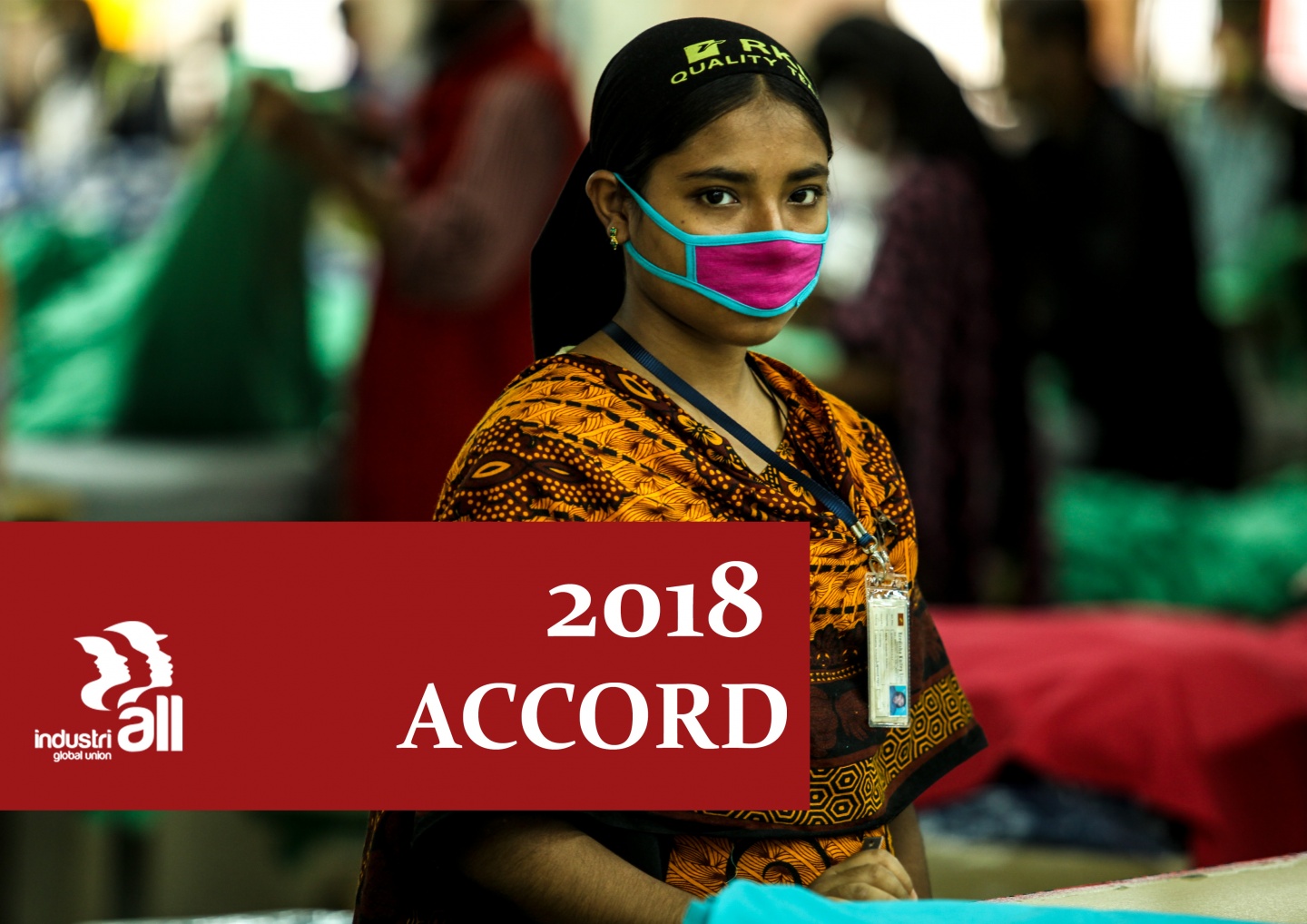1 July, 2017As the G20 prepares to tackle issues such as fair trade and corporate responsibility in Hamburg this weekend, global unions are calling on summit participants to look to the recently re-signed Bangladesh Accord on Fire and Building Safety as a model for promoting sustainable business practices.
IndustriALL General Secretary, Valter Sanches, said:
The legally binding Accord is, at present, the only credible option for health and safety in Bangladesh garment factories and has saved lives since its creation. The new agreement puts greater emphasis on the right of workers to organize and join a union, recognizing worker empowerment is fundamental to assuring workplace safety. The Accord can be expanded to other sectors, and as worker representatives, we urge you to acknowledge the new Accord's significance as an important step towards responsible global supply chains.
Christy Hoffman, Deputy Secretary of UNI Global Union, said:
The discussion of responsible business practices is incomplete without a serious look at the Bangladesh Accord’s success and renewal. Simply put, this model of accountability and transparency works. The first agreement is saving lives in Bangladesh’s garment industry, and the 2018 Accord strengthens worker protections by explicitly acknowledging the role unions play in making work safe.
Trade Union Advisory Committee to the OECD General Secretary John Evans said:
The signing of new Accord shows that legally-binding agreement between brands and unions is a successful model for driving positive change in global supply chains. The G20 Leaders need to learn this lesson and give it full support.
UNI Global Union and IndustriALL Global Union along with more than 20 brands announced a new Bangladesh Accord on Fire and Building Safety at the OECD Global Forum on Responsible Business Conduct in Paris on 29 June. Many more brands are expected to join.
The three-year agreement builds on the achievements of the first Bangladesh Accord signed in May 2013 in response to the Rana Plaza building collapse. It continues the first Accord’s ground-breaking legally binding framework and commitment to transparency. It also adds new worker protections and ensures that many more factories will be inspected and renovated, as signatory brands add suppliers.
The continuation of the Accord shows that binding agreements between multinational companies and global unions are proven as an effective means of directly improving working conditions in global supply chains.
Importantly, it recognizes the role of freedom of association and trade unions play in improving workplace safety. It includes enhanced protections for workers whose factories are closed or relocated due to the implementation of the agreement. It also presents the possibility to expand the Accord to sectors other than the readymade garment industry.
The Rana Plaza collapse in April 2013 claimed the lives of more than 1,100 workers, injuring 2,500 more. Six weeks later, unions, non-governmental organizations and brands announced the first Bangladesh Accord. Currently, the Accord covers more than 2.5 million workers. The new Accord goes into effect after the 2013 Accord expires in May 2018.
In May of this year, G20 labour and employment ministers drafted a declaration on shaping the future world of work that emphasized “violations of decent work and fundamental principles and rights at work cannot be part of the competition” within the global supply chain. This report will be presented in the summit this weekend.
